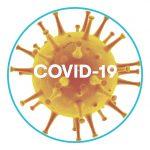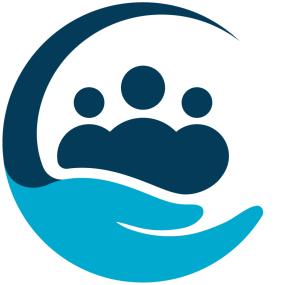5 Things I wish I’d known before COVID…. (pt. 2)

COVID-19 has presented challenges unlike anything we have faced before. In this blog, colleagues share their experiences by describing five things they wish they had known.

Consultant in ICM, Wales
How entrenched we had become in our speciality silos.
We needed to relearn how much better it can be, and how much good we can do if we work together, across multiple specialities with everyone pulling together in a common endeavour. The support from allied specialities has been incredible. We owe a debt of gratitude especially to anaesthesia, respiratory and renal medicine. Hardly revolutionary stuff, but we needed a potential human catastrophe to break down existing silo walls.
Staffed critical care bed capacity should be invested in as a National Resource.
Health Board’s and Trusts cannot be relied on to lead and provide the necessary increase in the supply of critical care capacity when competing demands, in particular elective orthopaedics and surgery, have taken up an excess of resources. Without adequate critical care isolation facilities, coupled with adequate multidisciplinary staffing we are, and will remain, extremely vulnerable as individuals and as a society to this Covid-19 pandemic, in addition to future ones. The NHS and Government, need to learn this lesson and provide direct resources to critical care services to provide future national resilience.
Critical Care is truly a team sport.
Anyone working in critical care knows this but the centrality of this can get lost. People look to individuals or equipment for answers, but the team is the answer. Critical care never was about a ventilator; it would be an awful lot simpler if it was. And critical care isn’t about an individual providing best care however good that individual is. You can only dilute the multidisciplinary team so much before things start to fracture, standards of care fall, outcomes get worse, and the stresses of providing critical care escalate. Individual’s well-being requires the team well-being to be functioning well, and to be supportive.
A new disease will provide the stimulus for innovation and improvement.
Improvements and developments in medicine and society have been learnt and driven historically by plague, pestilence and war. Sadly we had forgotten this in times of peace. Covid-19 has shown that lessons learnt from history – social distancing, testing and identification of infected individuals, and reducing transmission by isolation were effective historically, and have been as effective now. New treatments in critical care for inflammation and cytokine release when used at the right time, in the right individuals are likely to date their more widespread use in critical care to this pandemic. In future, critical care should view all community acquired pneumonia with respiratory failure as a potentially infectious disease, and appropriate personal protective equipment (PPE) should be used at all times, not just in suspected Covid-19 infections.
Critical Care Follow Up and Rehabilitation are crucial to the whole process of care.
Those who have been providing critical care Follow Up services have known from experience for a while now that it is often the family that have suffered more than the patient during their critical care stay. Isolating patients from their family in this infectious disease, has really exacerbated this suffering. The courage and strength of families has been incredible, and humbling to critical care staff. The use of technology to mitigate this suffering has been useful, but ultimately cannot compensate for the lack of face to face conversations with the nursing and medical staff. Facetime cannot compensate for the human need to hold hands and touch the faces of loved ones. We need to learn, and widely roll out critical care Follow Up services so that we ensure the best possible recovery of patients, their relatives, and our staff.

Critical Care Nurse, Yorkshire & Humber and Chair of the British Association of Critical Care Nurses.
That relationships are everything.
The professional relationships we build sometimes over time but often due to being thrown together for a common goal are crucial. Those relationships don’t need to be face to face and can be with people who you have never met. You can make a difference to how people feel and behave with your own behaviour, beliefs and values. People observe you covertly so integrity and truth telling is absolute key.
We can all make a difference.
As an ICU nurse I still feel guilty about not being stood by a patient’s bed. One of the nicest comments I have ever received was through twitter “through your actions and commentary, promulgating the reality of critical care nursing, you’ve been standing beside every single ITU bed in the country”. This made me cry and I realised that we all make a difference in our own way. Without researchers, academics, educators, front line staff we would never be able to achieve what we do. I am hugely proud to be a part of that.
Critical care nurses deserve better.
It makes me cringe every time I hear nurses being referred to as “angels”. We are highly skilled, safety critical professionals and should be treated as such. Nurses have seen their education decimated over the last 10 years. If we want intensive care nurses who can manage the complexity of intensive care patients, then we must support them with funded education and training. These people are your safety net, critical to contingency planning for when disasters like Covid-19 strike. They should be treated with respect.
The psychological impact of critical care on staff has been underestimated.
We must do better to protect and support staff working in critical care environments. We are talking about this now due to Covid-19 but we need to ensure the conversations don’t stop. We know that recruitment and retention of nurses in critical care has been an issue for a while now. It is time we “walked the walk” and supported them
The BACCN are awesome.
No-one I suspect will be surprised at this in my top 5! The pace and power in which the National Board and our members have responded to this pandemic is truly outstanding. They are a totally phenomenal group of people who I could not be prouder of.

ICM trainee, Thames Valley.
A good meme can get you through an odious shift. Tiktok has been rather questionable though.
Touching your face is wonderful, addictive, and forbidden.
This disease can be truly horrific but it is also fascinating, complex, and an intriguing window into the important work that often goes unrecognised in public health. In this besieged modern world we imperil I can’t help wondering whether this has been a needed tempering of our alloy ready for future challenge.
We’re one tribe underneath. A pleasant ragbag of talented, adaptable, determined, wonderfully caring people. It’s been quite inspiring to see those from so many different sectors pull together as one giant can-do pizza. Everyone loves pizza.
Generosity of spirit and dedication of will is no substitute for an underfunded and demeaned NHS. We are working hard to ensure the vital importance of quality critical care is recognised by the powers that be – let’s hope the supportive tones we’ve heard so far continue beyond the abatement of this pandemic, both for our service and the NHS more broadly.
Related Content
Written by: Helen Singh, Joel Meyer, Richard Benson
Written by: Zoe Brummel, Andy Breen, Peter Shirley
Written by: Ollie Cohen, Hannah Grafton-Waters, Greg Barton

